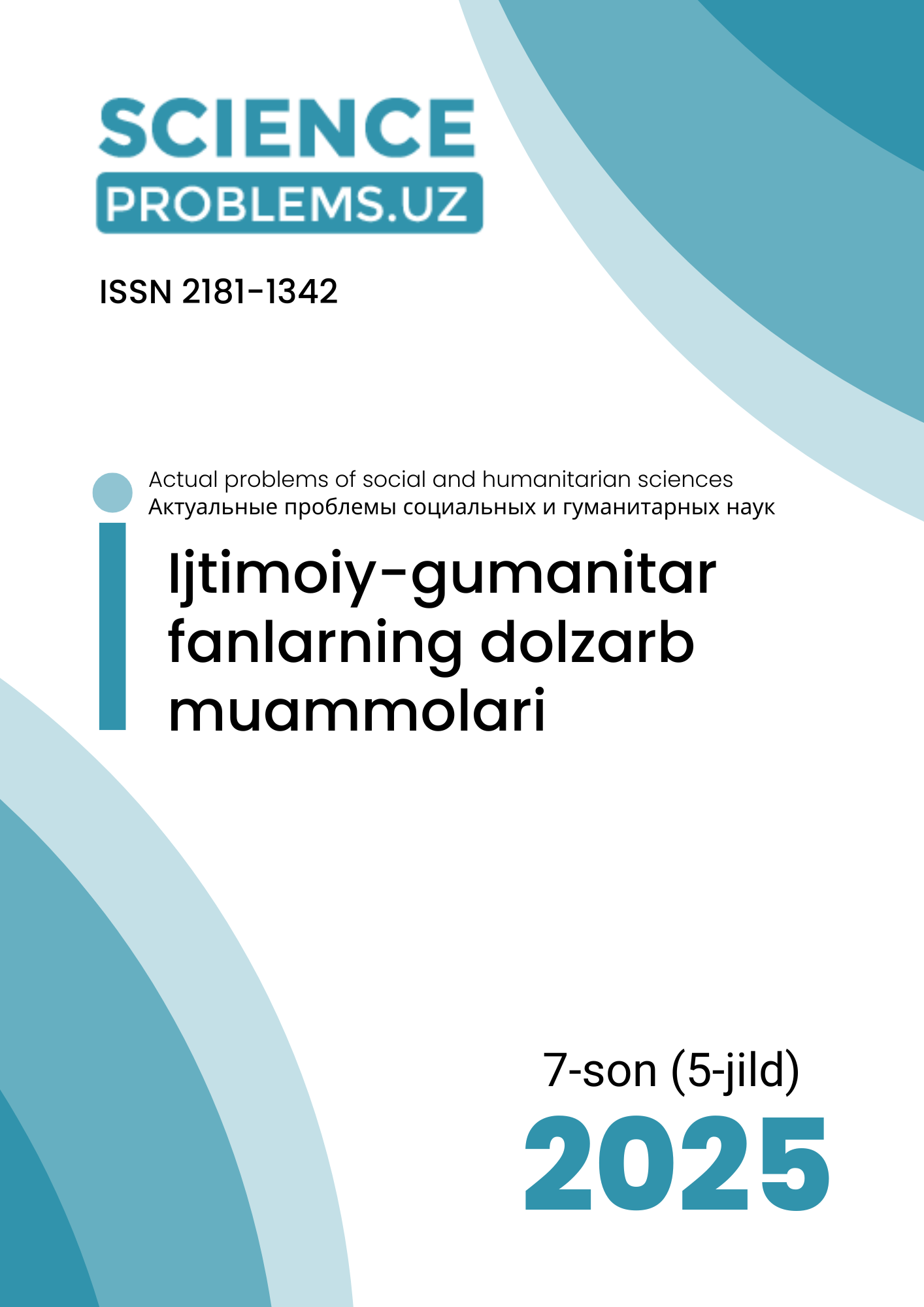ETYMOGICAL AND MORPHOLOGICAL ANALYSIS OF THE SUFFIX -ISM IN UZBEK PHILOLOGICAL TERMINOLOGY
DOI:
https://doi.org/10.47390/SPR1342V5I7Y2025N22Keywords:
philological terminology, etymology, morphology, transliteration, literary studies, linguistics, borrowed terms, Latin, Greek, terminological system, semantic analysis, linguistic model.Abstract
This article provides a comprehensive analysis of the etymological origins, morphological formation, linguistic function, and semantic aspects of the -ism suffix in Uzbek philological terminology. It traces the evolutionary development of the affix from Ancient Greek -ismos, Latin -ismus, and French -isme, through Russian and eventually into the Uzbek language. Based on Russian and English sources, the study explains how the suffix is used to form terms derived from noun, adjective, and occasionally verb roots. The adaptation of borrowed scientific, literary, philosophical, and stylistic terms into Uzbek via transliteration is also explored. A statistical analysis identifies 47 terms with the -ism suffix in the fields of literary studies and linguistics. Their origins (Latin, Greek, French, Russian, etc.) and semantic groupings (literary movements, linguistic phenomena, stylistic categories) are presented with tables and diagrams.
References
1. Богородицкий В.А. Введение в изучение современных романских и германских языков. Издательство литературы на иностранных языках. – Москва, 1959. – C. 11.
2. Грудева Е.В., Иванова И.А. Существительные с формантом -изм как показатель ключевых тем эпохи (на материале газетного подкорпуса нкря) / Вестник Череповецкого государственного университета 2013. № 3. Т. 1. – C. 72.
3. Ефремова, Т.Ф. Новый толково-словообразовательный словарь русского языка / Т.Ф. Ефремова. – М., 2000.
4. Қуронов Д. Адабиётшунослик луғати / Д.Қуронов, З.Мамажонов, М.Шералиева. – Тошкент: Akademnashr, 2013. – 408 б.
5. Ҳожиев А. Тилшунослик терминларнинг изоҳли луғати. –Тошкент: Ўзбекистон миллий энциклопедияси, 2002. – 168 б.
6. Https://www.etymonline.com/word/-ism








